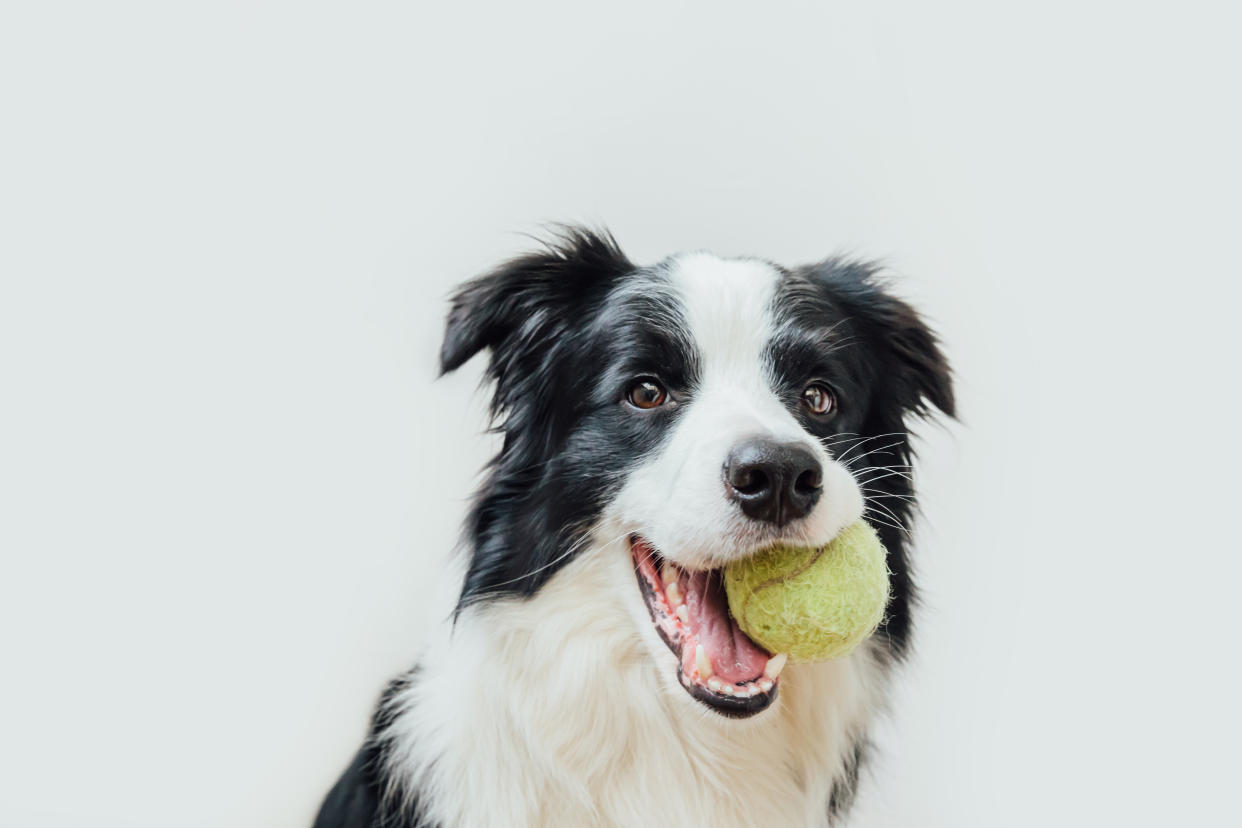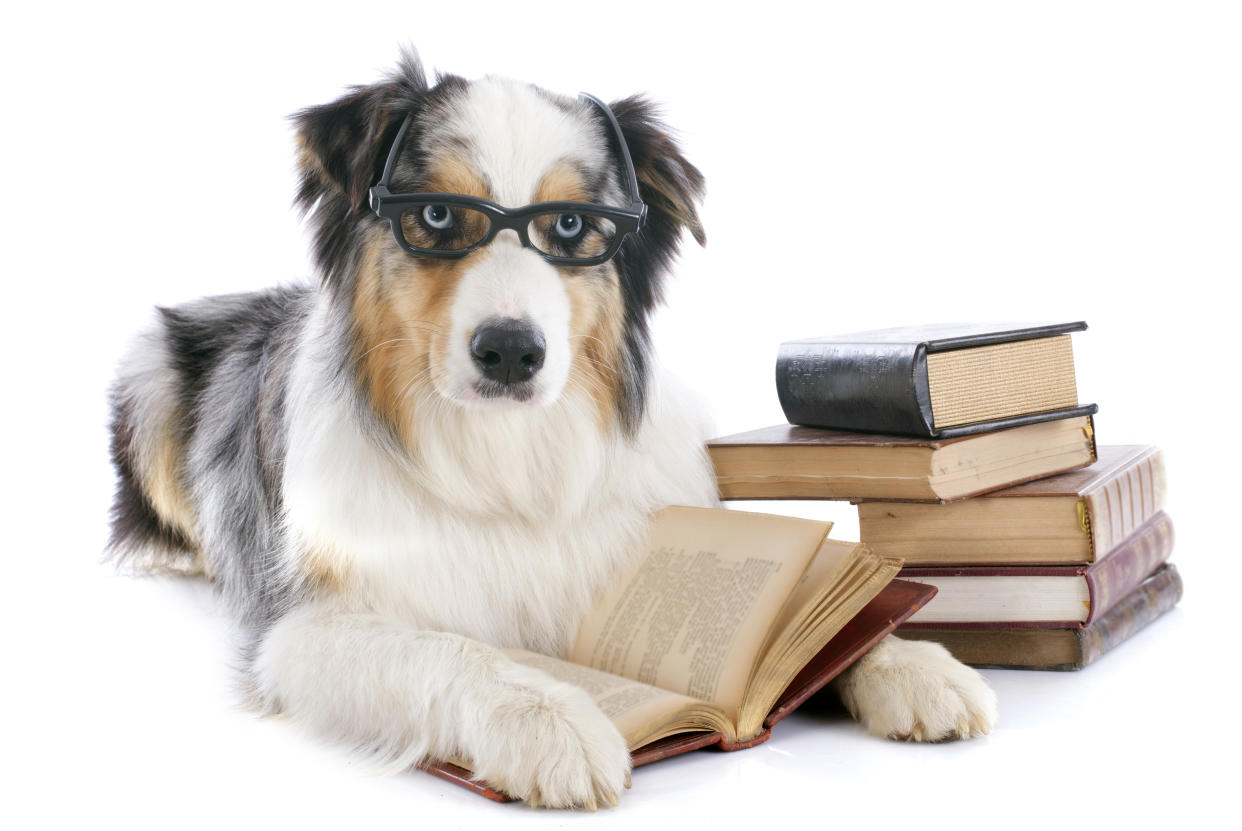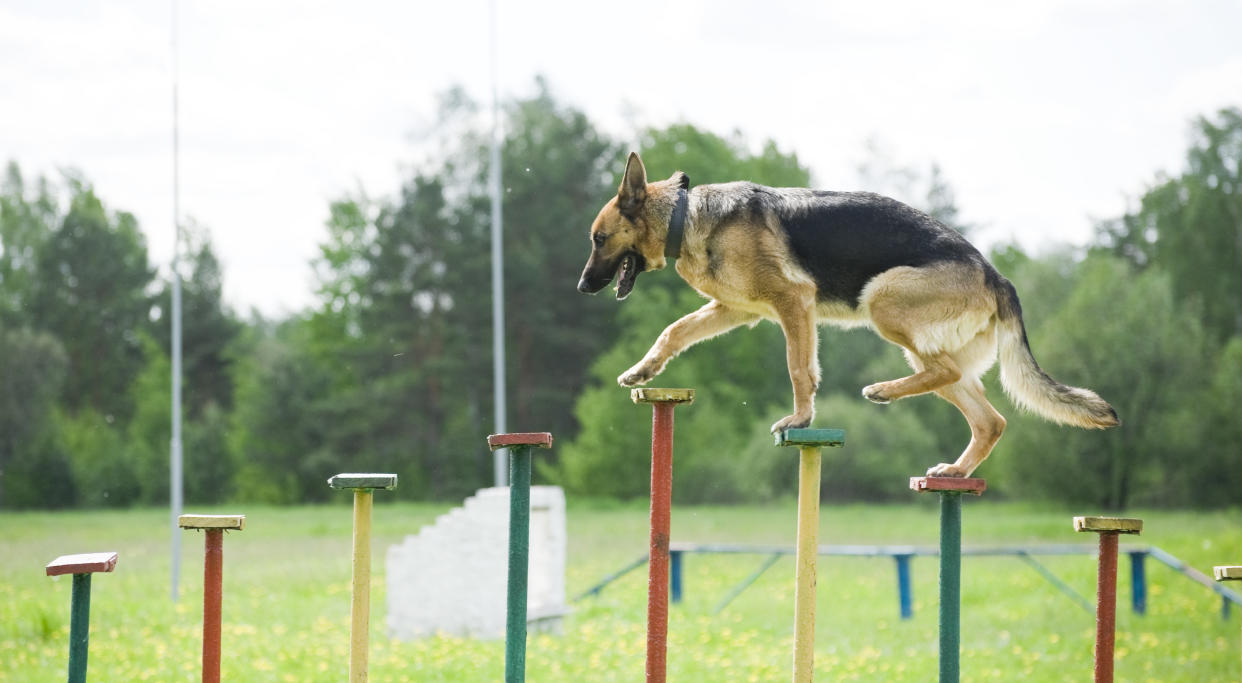Is your dog a genius? Here's how to find out

Most dog-owners are convinced their pet is an undiscovered genius. Whether it's a Yorkie who can open a fridge, a spaniel who can howl in tune to opera or a pom who pirouettes, we like to believe that our companion is the canine equivalent of Professor Stephen Hawking.
However, while all dogs are definitely good dogs, not all dogs are equal when it comes to cleverness.
It's generally believed that collies are the breed with the greatest capacity for learning - their evolution as working sheep dogs has made them fast-thinking and quick to adapt, particularly when a reward is involved. They are also loyal and keen to please humans.
Now, a new study suggests that some collies aren't just clever - they're doggy geniuses, with the astonishing ability to learn certain human words and retain them for at leat two months.

Scientists examined the ability of six collies, identified through the Genius Dog Challenge, to learn the names of toys. They found that most learned 12 new toy names in one week and remembered them for two months.
Researchers suggest these dogs are a powerful model for studying "mental mechanisms related to word acquisition in non-humans."
Shany Dror, the leading researcher, from the Family Dog Project, Eotvos Lorand University, Hungary, said: “We know that dogs can easily learn words that are linked to actions, such as ‘sit’ or ‘down’, but very few dogs can learn names of objects.
"For more than two years we searched around the world for dogs that had learnt the names of their toys, and we managed to find six.”
Read more: Clever dog uses boat
The dogs, – Max from Hungary, Gaia from Brazil, Nalani from The Netherlands, Squall from America, Whisky from Norway, and Rico from Spain – all qualified to participate in the challenge.
To do so, the dogs had to prove they knew the names of more than 28 toys, with some able to remember more than 100.
Claudia Fugazza, head of the research team, said: “These gifted dogs can learn new names of toys at a remarkable speed. In our previous study we found they could learn a new toy name after hearing it only four times. But, with such short exposure, they did not form a long-term memory of it.”
Watch: Sprightly pup has the time of her life with creative dog toy
In the new study, researchers challenged the dogs’ owners to first teach their pets the names of six toys, and then 12 new toys in only one week.
The researchers were amazed that the dogs were easily able to learn the names of between 11 and 12 toys.
One and two months after they had learned the names of the new toys, the dogs were tested, and still recalled the names.
The data was collected during the Covid-19 lockdowns and so owners were asked to set up two video cameras at home and connect to a livestream so the dogs’ and their owners’ behaviour could be fully monitored.
Read more: Clever dog helps his owner take out the trash every day
The researchers have set up a website, where owners can register their dogs if they can recall an exceptional number of words and names.
"Thanks to the Genius Dog Challenge we have managed to find dogs from other breeds including a German shepherd, a pekingese, a mini Australian shepherd and a few dogs of mixed breeds,” Dror said.
“Dogs are good models for studying human behaviour as they evolved and develop in the human environment,” said one of the study’s co-authors, Prof Ádám Miklósi at Eötvös Loránd University.
“With these talented dogs we have a unique opportunity to study how another species understands the human language, and how learning words influences the way we think about the world.”

While the genius dog may be resting on his special cushion, mentally computing all the words he knows, however, do our normal pooches stand a chance? And is it possible to teach a more...normal dog how to remember words?
"According to behaviourist Stanley Coren, the average dog can understand 165 words!" says dog trainer Niki French of puptalk.co.uk. "But understanding the meaning and actually doing an action is very different.
"Some breeds like collies and poodles are famous for being really 'smart' but all dogs can learn at any age - you absolutely can teach an old dog new tricks and words."
Watch: Intelligent dog points electric fan towards his cage by himself
She believes our dogs understand "a lot more than we give them credit for, because we look at language with human perception.
"They will learn a lot just by listening and observing. It just doesn't mean they necessarily pair a word or name with a specific action."
Niki adds, "I know that my dog knows the separate words 'cheese' 'hotdog' 'chicken' 'sausage'. But they all result in a similar action or response - check in with me and you get paid handsomely!"
Teaching our dogs human words can be useful, however, she says.
"All we are doing a pairing a sound with the desired response - sit, stay, go and find your ball. It can be used to keep them mentally active which is a great thing.

If you want to up your dog's mental powers, she suggests, start simply.
"It is quite easy to teach a name for their toys, one at a time. And then send them to go and find it by name.
"Another really easy thing to do is just saying a word or short phrase as something is happening. I say 'collar on'. I've said it enough times now that he knows it means 'stand still and I'll pop your collar on'.
"Regularly teaching our dogs new things can be so beneficial. It's much easier to tire them out mentally than physically," she adds.
"People whose dogs have behaviour problems might try to tire them out with more exercise. But all that does is create a fitter dog. Brain games training is the absolute winner for me, for a calm and happy dog."
For those wondering how many toys their own genius should recognise, dog behaviourist and trainer Zoe Willingham says, "The average pet owner in my experience trains their dogs to learn the names of around 6 toys on average, but we know we can train many more than that if we put the time into the training.
"Breeds that thrive on this type of training are Collies, and working breeds such as the spaniels, retrievers and Hunt, point, retrieve breeds, but any dog can learn the names of toys given the time and training.
"My own pug puppy called Noodle can recognise around 12 toys and select on cue so never let breed type put you off doing the training!"
"We know from scientific research and from experience of training hundreds of puppies and dogs that the more varied the training and environmental enrichment is for puppies, the more it fires up the neurons in the brain which in turn makes puppy more receptive to learning new skills, solving problems and can help with confidence building and their ability to adapt to situations both now and later in life."
Vet Joanna Woodnutt adds, "Whilst all dogs are intelligent in their own way, some dogs have intelligence that’s easier for us humans to recognise.
"Certain breeds are considered to be more intelligent than others, with Border Collies tending to top most lists for intelligence. This is partly due to the way they’ve been bred – these dogs have to be capable of learning many commands, but as they often work at a distance from their owners, they also need to be intelligent enough to make their own decisions occasionally," she explains.

"Dog intelligence tests are becoming more common, and they can be a fun way to interact with your dog. But a lot of what we humans see as ‘intelligence’ is actually learned behaviour," she says.
"In other words, if your dog fails, it doesn’t mean they aren’t intelligent, it might just mean they haven’t been taught the right skills.
"Don’t compare your dog to others – all dogs are unique!"
You see, owners. Little Muffin is a genius, after all.
Watch: Clever dog's newspaper trick is rewarded with treat


